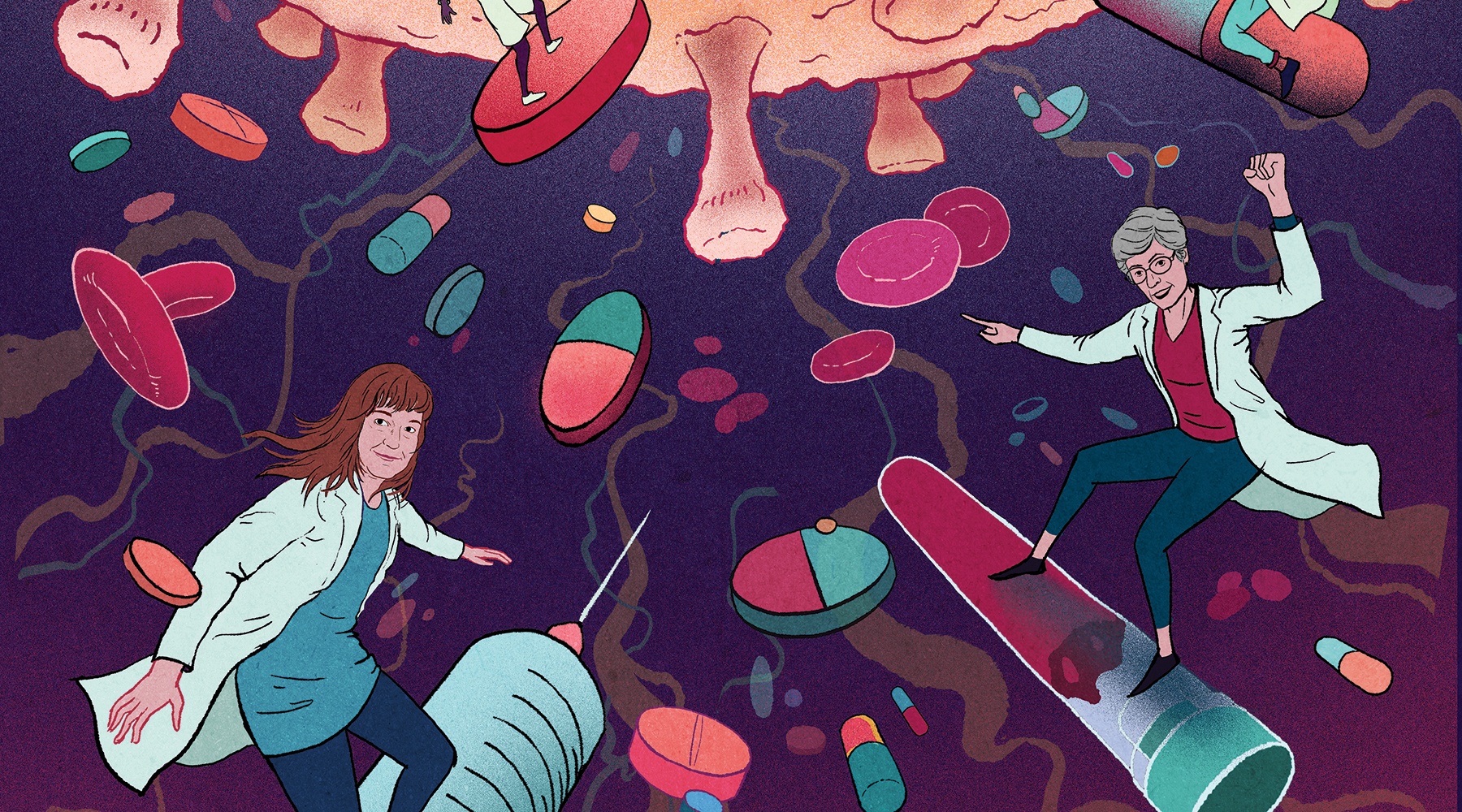You simply couldn’t find a scientist who was studying Covid-19 in 2019. Which makes sense, because it wasn’t until the final day of that year that China reported its first cluster of cases to the World Health Organization.
In the months that followed, countless researchers pivoted to tackle the novel coronavirus that had emerged as a once-in-a-century health menace. In a single year, they wrote more papers on Covid-19 than had ever been published on diseases – measles, cholera, polio – that had ravaged humanity for a century or more.
 At OMRF, rheumatologists tapped their expertise with patients living with autoimmune diseases to offer insights on treating Covid-19. They also helped prepare a comprehensive review of therapeutic candidates and vaccine strategies.
At OMRF, rheumatologists tapped their expertise with patients living with autoimmune diseases to offer insights on treating Covid-19. They also helped prepare a comprehensive review of therapeutic candidates and vaccine strategies.
Cardiovascular biologists examined viral risks for patients living with heart disease. Immunologists looked at ways in which the attacks of the coronavirus mimicked lupus, a disease they’d spent their careers investigating. They repurposed research equipment to create a diagnostic testing lab at OU Health that helped ease testing shortages across the state.
The largest, most comprehensive effort involved a team of OMRF scientists who’d been probing anthrax bacteria with the support of a longtime federal grant. When the granting agency – the National Institute of Allergy and Infectious Diseases, headed by Dr. Anthony Fauci – offered supplemental funding for Covid-19 initiatives, the OMRF team mapped out an ambitious slate of projects. In June, the NIAID supplied a two-year award to help underwrite the work.
“Our existing research on anthrax had a developed infrastructure to study immune response to a serious viral infection,” says Dr. Linda Thompson, one of the project leaders and the Putnam City Schools Distinguished Chair in Cancer Research at OMRF. “So, we were able to start right up without having to develop new methodology.”
The research focuses on understanding why some people become extremely sick when infected with the virus, while others do not. Dr. Judith James, OMRF’s Vice President of Clinical Affairs and the Lou C. Kerr Endowed Chair in Biomedical Research, spearheads a major piece of the study.
Analyzing blood donated by hundreds of Oklahomans who’ve recovered from Covid-19, “we’ve compared asymptomatic cases to those with mild symptoms and those who’ve had severe infections and survived hospitalization,” says James. She’s searching for molecular clues known as biomarkers to predict those who might suffer life-threatening complications from the virus. “If we could identify people at highest risk, we could use different treatments at an earlier stage and improve their prospects for avoiding serious illness.”
James is also investigating other facets of Covid-19, including why it seems to strike tribal populations disproportionately and whether it can lead to autoimmune conditions. As with so much about the virus, answers will take time.
Still, as challenging as the past year has been, James says it also brought some silver linings. “It’s been amazing to see what the scientific community has accomplished. We’ve learned so much. And if we find ourselves facing a new infectious disease in the future, we’re now much better prepared.”
Illustration by Antoine Doré (@antoinedoreart @levycreative)
—
Read more from OMRF’s 2020 Annual Report
A Year of Challenges
New Hope for Treating Vision Loss
A Homecoming of Sorts
Honoring a Recovered Texan
An Anti-Aging Pill?
Old Drug, New Tricks
From Bedside to Bench
Healing Broken Hearts



